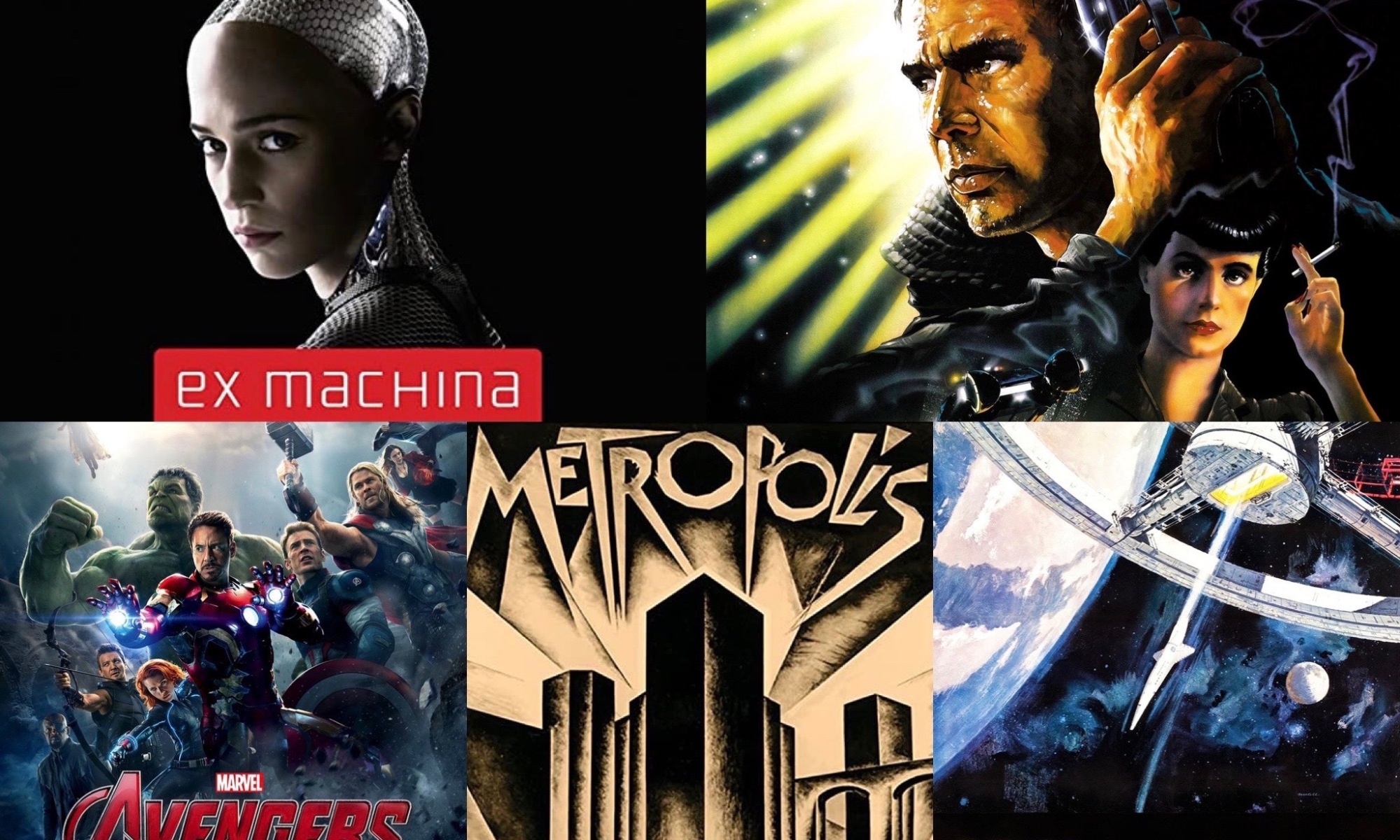An effective trope we see over and over again in science fiction is the machine’s revolt, wherein the mechanical entity develops sentience and gains autonomy against its human creators. Some classic examples of this include the machines of Metropolis (1927), the all-seeing HAL from 2001: A Space Odyssey (1968), and the rogue Replicants of Blade Runner (1982). But we can take philosophical Ultron in Avengers: Age of Ultron (2015) and persuasive Eva in Ex Machina (2014) to show that the trope of sentient machine has succeeded as a horrifying narrative element for almost 100 years, probably more. You’d think that after a while, we as an audience would get tired of seeing the same plot twist used over and over again, a predictable contemporary sci-fi spin on Frankenstein’s monster, whirring and beeping behind hauntingly soulless LED eyes and, on occasion, waxing poetic. But when all is said and done, the countless variations of the living machine still cause us to watch what we say around our Alexas.
Most artificial intelligence (AI) characters are originally developed to serve humankind to whatever end. Drawing from our examples, Ultron is originally programmed to save humanity. Eva’s success as an AI fulfills Nathan’s god-complex on the large scale, but it’s implied that he takes advantage of her female design and sexuality as he did with her predecessors. HAL is a friendly navigation system before he…well, turns not so friendly. Typically, AIs become antagonists only when they turn against their programming and human creators: Ultron takes his charge to the extreme; Eva refuses to live in a glass cage; HAL attacks his passengers. Some AI are coded from the getgo as inherently villainous explicitly because of their opposition to humans, like the Replicants, or the assassin droids in Star Wars who have one job that I’m sure you can infer. But even in the case of beloved and reformed IG-88 from “The Mandalorian”, we can’t help but tense at the possibility of a factory reset that could erase any and all newfound goodwill toward his organic allies. We tense because we expect and fear that an AI will seize its autonomy.
In the same way the horror genre examines innate fears and societal anxieties, many examples of artificial intelligence as a narrative element reveal our anxieties about control, ones we may not realize we have until we’re facing down the proverbial Frankenstein. I don’t think that audiences are afraid of the machine itself. Generally, we’re pretty quick to embrace supercomputers and more advanced technology (see: Google Home, Oculus Rift, and smart devices ranging from cell phones to refrigerators). The Cyberpunk aesthetic is all about a more literal embracing, enhancing biology with mechanics, compensating for the perceived weaknesses of an unaltered physical body — think Ghost in the Shell (1995). We jump at the opportunity for instant accessibility and convenience, and we expect our machines to do as they’re “told”. There’s a reason the machine’s revolt remains consistently unsettling in stories. Filmmakers understand the comfort we find in the familiar, the bubbles we form to keep ourselves safe from the unknown and the unpredictable. Machines are meant to make our lives easier, more comfortable, so we are unsettled when machines choose to act in a way that disrupts that comfort.
Stories of artificial intelligence explore our relationship with technology, but also our relationships with one another, especially through human-presenting AI like Eva, the Replicants, or the androids of Quantic Dream’s Detroit: Become Human, for any video game buffs in the audience. In these examples and beyond, characters that sexualize and/or abuse human-like AI expose control-based temperaments that certainly should not be disregarded just because the victims of violence are not literal flesh and bone. If human-like machines fulfill the fantasies and expectations of their users, imagine what that says about the user’s fantasies and expectations of their neighbors: comfort, convenience, immediate gratification in myriad capacity.
It may seem paltry right now to look toward AI for meaningful revelation; we have far more pressing matters to attend to than robots on the rise. However, many of us are undergoing meaningful self-examination in light of these convicting days, particularly regarding how we treat fellow humans when they are standing before us in the flesh and when they are out of sight, but not meant to stay out of mind. As life begins to look ever more like a science fiction thriller, the instinctual reaction may be to take hesitant steps away from the Alien back into the realm of the Familiar. But we might miss the opportunity to question why we are afraid, why we would rather stick to the known, and what we expect from our neighbors to maintain that familiarity. These answers will always lead to further questions, but their roots inevitably reveal our black mirrors.


I agree. AI has changed many things such as tracking your purchasing habits and letting you know when a possible unauthorized transaction is occurring. Your short essay was very interesting as it related to the before known plot before seeing an AI movie.
LikeLike